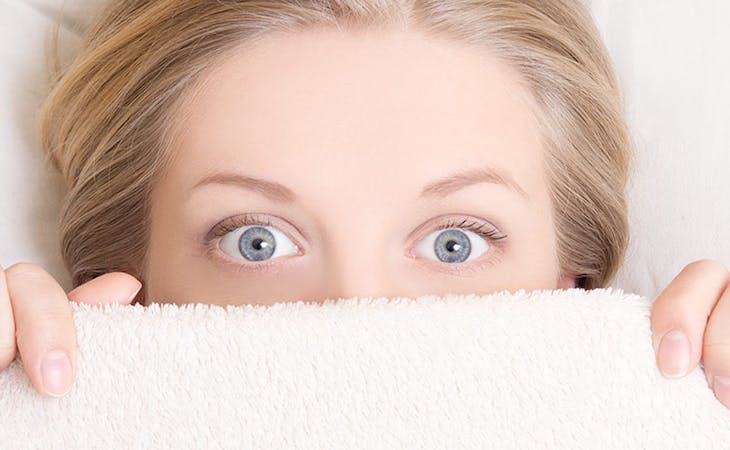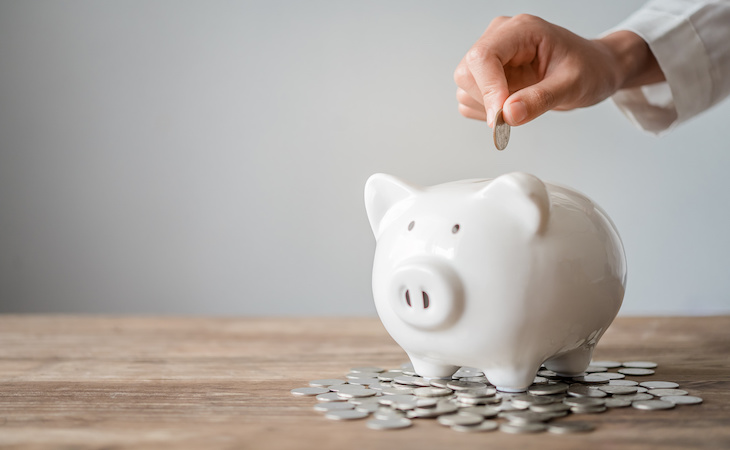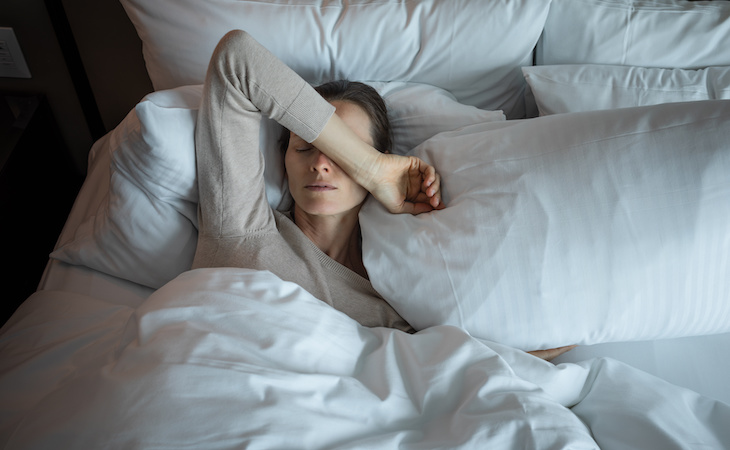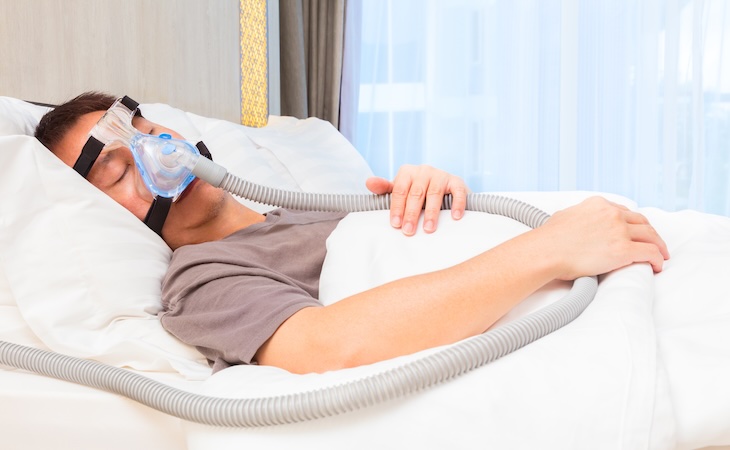Your body does some amazing things while you sleep, like sifting through and sorting all the info you were exposed to during the day and lowering your levels of cortisol, the stress hormone. But it also does some things that are not so terrific.
Not only can sleep disrupters like snoring, leg cramps, crazy dreams, and more mess with your precious rest, but they might also signal that you’re dealing with a larger health issue. Here are seven overnight behaviors to look out for.
Snoring
Not only is snoring annoying (just ask anyone who sleeps next to one of the U.S.’s 37 million regular snorers), but it’s also linked to a serious condition: sleep apnea, in which you repeatedly stop breathing throughout the night.
“Though not everyone who snores has sleep apnea, almost everyone who has sleep apnea snores,” says Anil Rama, MD, adjunct clinical faculty member at the Stanford Center for Sleep Sciences and Medicine and medical director of Kaiser Permanente’s tertiary sleep medicine laboratory.
There are two common types of sleep apnea:
- Obstructive sleep apnea, which occurs when relaxed muscles in the throat block your airway
- Central sleep apnea, which occurs when your brain doesn’t properly signal the muscles you need to breathe
Unsurprisingly, missing out on oxygen over and over again throughout the night is serious business. Sleep apnea increases your risk for fatigue, mood issues (including depression), heart issues, namely high blood pressure, weight gain, type 2 diabetes, and more.
Read A Doctor’s Advice for Dealing With Sleep Apnea for tips on treating this health problem.
Getting up to pee (often)
Chug a big glass of water before bed and you’ll likely find yourself making a midnight bathroom trip. Regularly make multiple pee trips per night, though, and you may have a condition known as nocturia.
A number of health concerns can contribute to nocturia, including urinary tract infections, enlarged prostate, hormonal changes associated with menopause, diabetes, being overweight, and (again) sleep apnea.
“When you have breathing problems throughout the night, you produce less of an antidiuretic hormone that helps you hold it and more of a diuretic hormone that gives you the urge to pee,” says Rama.
Since your bladder function typically weakens with age, midnight bathroom trips are also common in older adults.
Over time, lots of late-night toilet trips can have major implications for your overall health and well-being. People with nocturia report both poor work productivity and increased sick leave, and say that their regular sleep disruption affects their general quality of life.
Read How to Put an End to Those Late-Night Bathroom Trips for tips on treating this health problem.
Waking up with leg cramps
If you’ve ever been woken up by a wicked Charley horse, you’ve probably immediately Googled the culprits behind the often excruciating muscle cramps or spasms.
These cramps, which usually plague legs, calves, and feet, crop up unexpectedly during the night, often because you’re dehydrated or dealing with an electrolyte imbalance.
However, they can also indicate more nefarious chronic health issues, such as circulatory diseases (like atherosclerosis), neurological problems, and hormone-related conditions (like diabetes and hypothyroidism).
Read How to Keep Nighttime Leg Cramps From Ruining Your Sleep for tips on treating this health problem.
Grinding your teeth
Formally known as sleep bruxism, nighttime jaw-clenching or teeth-grinding is more common than you might think; the National Sleep Foundation (NSF) estimates that just shy of one in 10 adults do it.
Research suggests sleep bruxism (which can lead to poor sleep quality and destroy your teeth) may be associated with anxiety or hyperactivity. In fact, the Bruxism Association suggests the vast majority of teeth-grinding stems from anxiety or stress.
It’s also another common sign of sleep apnea. (Noticing a trend here?) “When you grind your teeth, you actually stimulate your tongue muscle, which then helps open up your airway,” Rama explains. “Your body cares more about breathing than keeping your teeth intact.”
Read Grind Your Teeth at Night? Try These Tips for advice on treating this health problem.
Waking up drenched in sweat
Though night sweats are a common occurrence for women going through menopause, they can also occur in people with other hormonal imbalances—particularly serotonin imbalances—and who take medications that regulate hormone levels, according to the American Osteopathic Association.
Other common culprits: hyperhidrosis (a condition in which the body sweats excessively without clear cause), anxiety, and low blood sugar (usually in people who take medications to lower blood sugar, like diabetics).
According to Rama, breathing issues can also contribute to night sweats: “If you breathe 12 to 15 times a minute while you sleep and every breath takes extra effort, it’s literally like you’re at the gym instead of resting.”
Read A Doctor’s Advice for Sleeping Better During Menopause for tips on treating this health problem.
Tossing and turning a lot
If you spend the night constantly changing positions and struggling to get comfortable, it may be time for a new mattress, but it may not.
In many cases, this tossing and turning results from Restless Legs Syndrome, a neurological disorder identified by “the urge to keep moving the legs throughout the night due to uncomfortable sensations,” notes the NSF.
This neurological disorder affects up to one in 10 adults and is often the most noticeable (and frustrating) at nighttime.
Read 5 Ways to Sleep Better With Restless Legs Syndrome for tips on treating this health problem.
Having crazy dreams
Though we still have much to learn about dreaming, if you often have vivid dreams—and wake up in the middle of them—listen up.
In addition to stress and hormonal fluctuations, vivid dreams can be yet another indicator that you’re having trouble breathing at night. “In REM, the sleep stage during which you dream, your body is paralyzed, meaning your airway muscles can become more flaccid and restrict your ability to breathe,” Rama says.
This can then signal your brain to wake you up so you can breathe easier. And when you wake up straight out of REM, you’re more likely to remember your dreams.
Clear, crazy dreams can also be a sign of narcolepsy (persistent daytime sleepiness that affects your daily life). According to The Sleep Foundation, people with narcolepsy often experience intense dreams and remember them because they enter and leave REM sleep incredibly quickly.
Read 6 Reasons You’re Having Vivid Dreams for tips on treating this health problem.
Where to seek help
If you’re experiencing any regular sleep disturbances, or feel like you never wake up feeling truly rested, pay a visit to a sleep specialist like Rama, who can conduct a sleep study to identify any irregularities and create a treatment plan to get your sleep back on track.




